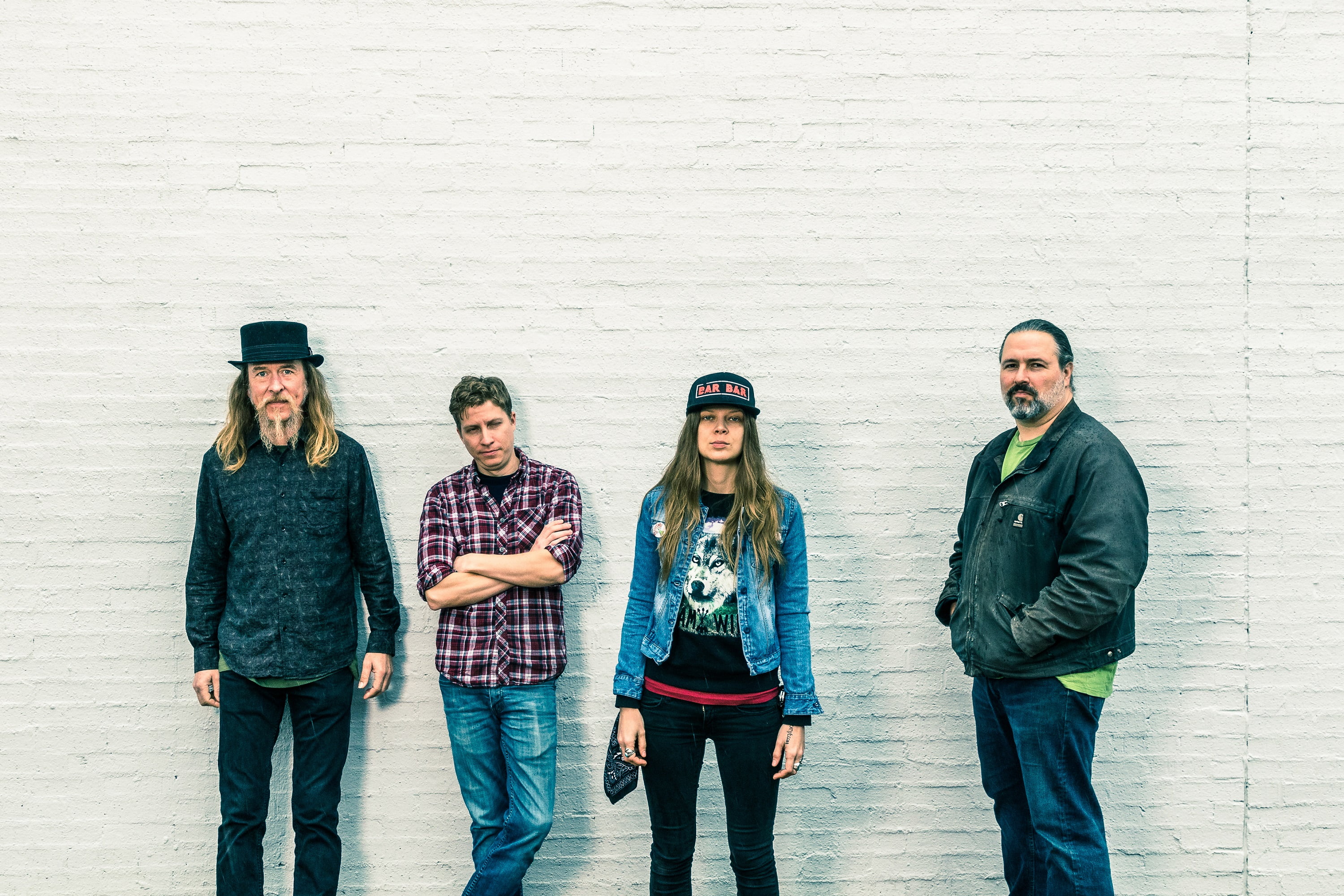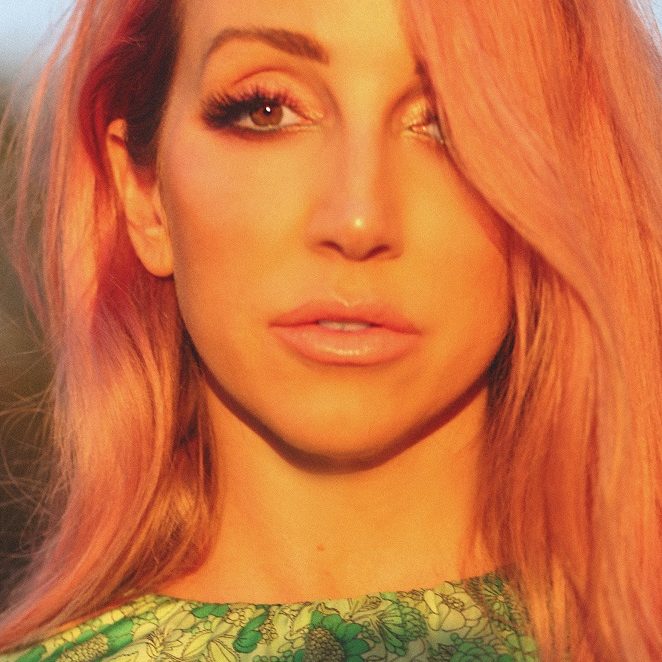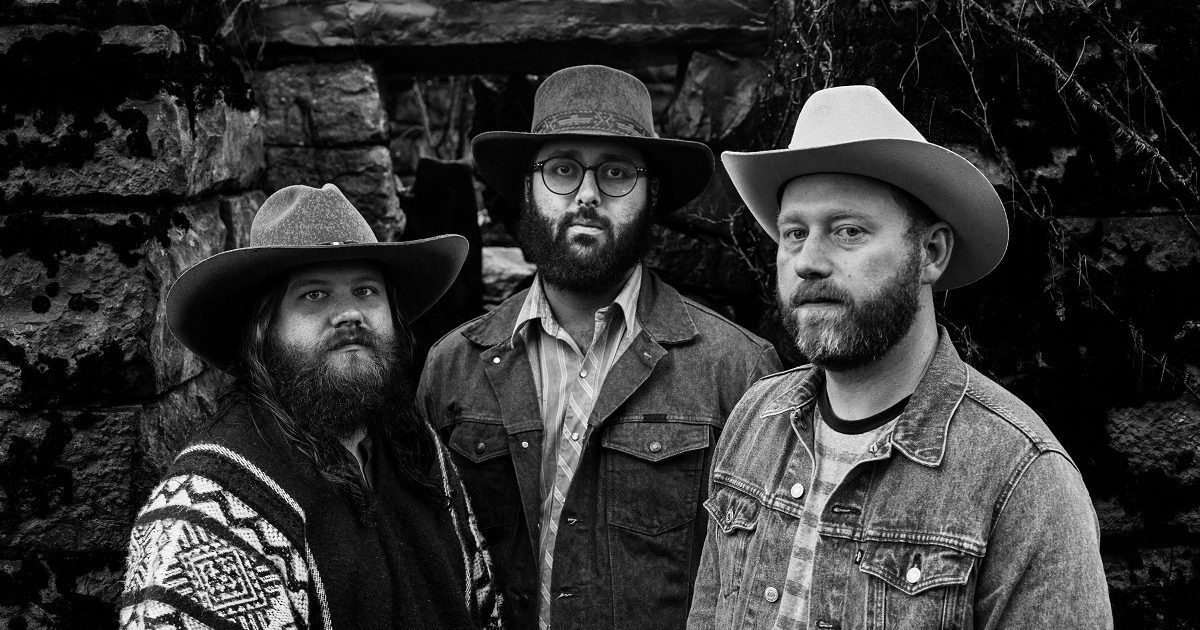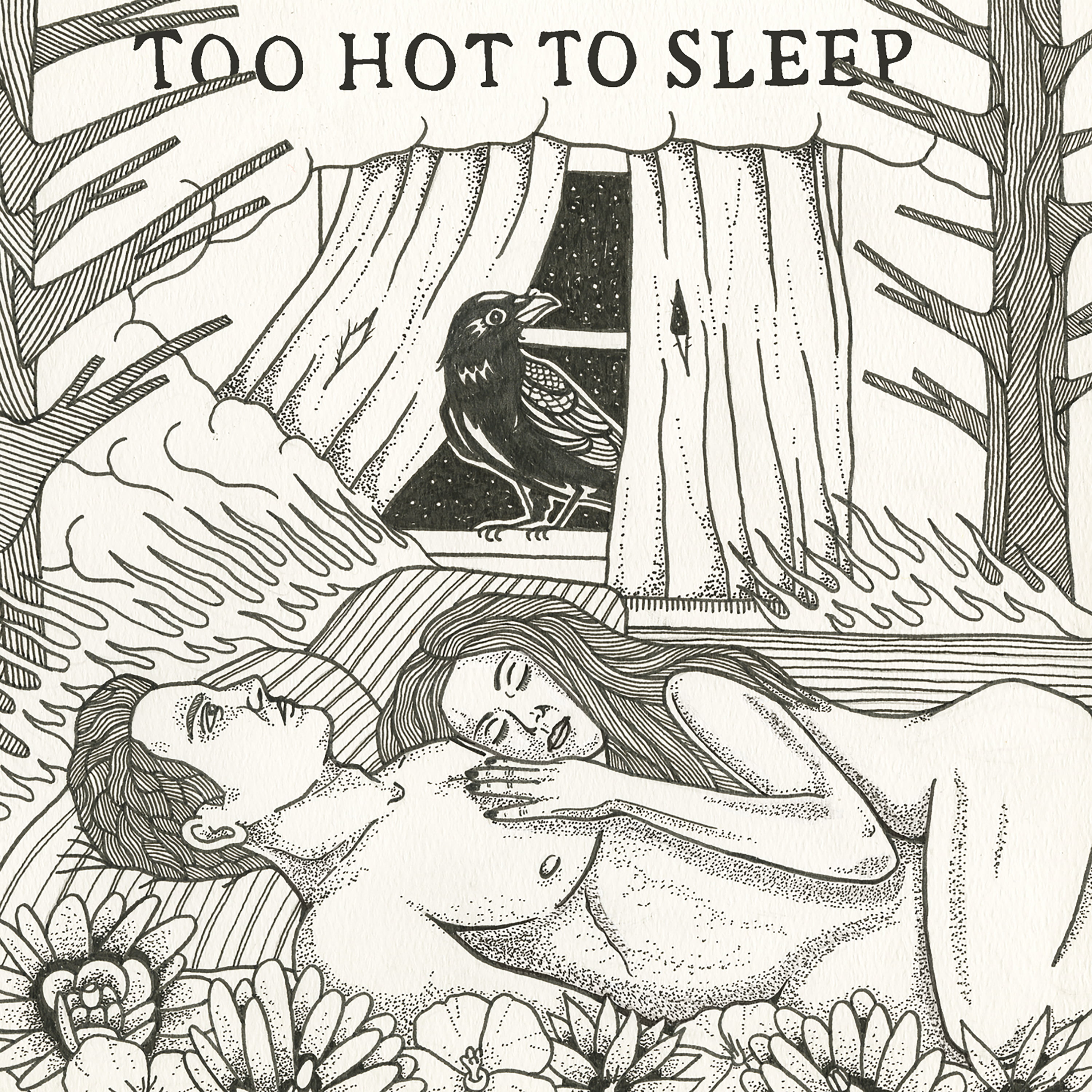Within the bounds of country music, pronoun play doesn’t come easy, but Sarah Shook believes listeners are more than capable of finding ways to see themselves in her songs. With her band, the Disarmers, she deals with gender in her songwriting as a means to challenge the heteronormative forms of representation within country music.
On “The Bottle Never Lets Me Down,” from the band’s new album, Years, she sings about becoming the man she used to be, while on “Parting Words,” she addresses a woman, her former lover, about the way things ended. Not only does she weave together traditional country, honky-tonk, blues, punk, and more, but she conscientiously flips country music’s perspective around in order to be more inclusive.
There’s a definite sense of who belongs and who doesn’t in country music, but that’s slowly shifting.
It’s a really very cool and exciting time for women making country music, especially the sort of throwback traditional country. There’s a lot of buzz centered around this new wave of women outlaw country artists. I think that’s a really good thing, and industry-wide it’s a lot more prevalent than you realize. One of the things that was frustrating for me last year when we put Sidelong out, I probably did 50-some odd phone interviews, and two of them—two of them!—were with women. I had a whole conversation with my manager, like it’s hard enough being a woman playing music, but it’s a tough field to be a woman in journalism. This year with this release, I feel like there’s been more of a balance as far as speaking with male and female journalists, and that’s been encouraging too.
You’ve been mentioned along with country outsiders like Sturgill Simpson and Margo Price. How do you see your relationship within the genre?
I think that we’ve been branded outlaw, and I feel like people interpret that in different ways. Of course outlaw country is the super old school Waylon Jennings beat, but I think the term is evolving pretty rapidly into something that is more inclusive to people doing it their own way. That’s one of the things that was really cool about country music in its heyday, when it was first starting out and all those classic artists were on the radio. As soon as the song started—a few bars in—you could tell whose band it was because all those bands had such a distinct sound. That is really hard to find today, everything sounds the same. It’s very clear that people are just looking for patterns that have achieved success and are popular. And then you have folks out there like Margo Price and Kelsey Waldon and Kacey Musgraves, and they’re kind of doing their own thing. Their bands have respective sounds that are unique and identifiable. That is really cool and very exciting.
You’ve been forthright about your sexual identity. How do you navigate your personal story within the larger scope of representation?
To a degree, I feel like there are certain points in time where it’s paramount to be very outspoken about that stuff. Most of the time, I feel like doing what I’m doing—touring relentlessly, putting out records, and being unapologetically myself—is a very powerful and political maneuver as well. Sometimes it’s more effective in a palpable way to live what you’re saying and be the person that you’re talking about. I think it’s a cool and different way for people to realize, especially within country music, which has a certain, specific demographic of people, that, yes, you can be a pansexual atheist vegan making country music, and does that affect the music? Sometimes lyrically, yes, but the overarching theme is just that I don’t necessarily have to have everything in common with my fans. We can have differences. It’s really cool to have interactions with people who are like, “I never felt comfortable with the idea of homosexuality or bisexuality, and I meet you and we’re talking and hanging out and having a good time. You’re just a regular person.” I’m like, “Exactly, we’re regular people, believe it or not.” [Laughs]
When you put it like that, it’s so depressing, but it rings true. Every time I meet someone who’s uncomfortable about anything outside heterosexuality it’s usually because they haven’t spoken to anyone who’s different from them.
Exactly. And that is such a big thing. We can play New York City and that’s a totally different experience than playing a small town in Alabama. I think consistently being the person who is always willing to talk to fans after a show and be real and be myself and form unlikely friendships, I think that’s a really cool way to create change.
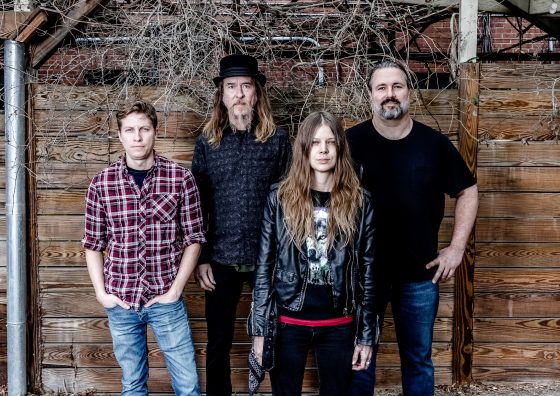
I always thought action over verbiage is the way to go about it. But then looking back, we’ve seen from the Dixie Chicks how speaking your mind can be dangerous. Do the repercussions ever concern you?
You know, I’ve never been concerned about that because I feel it’s important to be honest and forthright as a human being, and as an artist and certainly lyrically as well. The other thing to me that’s really important, from the word go I’ve been very strategic about how I wanted to grow this band and how I wanted to see success. It’s never been my prerogative to go after the country music fan base—and certainly that’s the majority of our fan base. My thing was, “Yes, this is country music, but this is music for anyone who likes it.” It’s inclusive, and anyone that these songs resonate with, it’s for you. Taking that stance and being strategic about it has certainly helped. It’s really encouraging to be a country band playing outlaw country and have a very diverse audience, and I think that’s a thing a lot of traditional artists struggle with. They get pigeonholed. Being outspoken in an honest fashion but not a combative fashion, I feel that’s really helped push our music to demographics that it wouldn’t necessarily otherwise reach.
All this talk of the new outlaw makes me excited for a tour one day, or even a festival.
We need our own cruise. [Laughs] That would be amazing.
An outlaw lady cruise.
Exactly. Oh my god, that’d be a lotta fun.
Critics have referenced the underlying sense of menace in your voice, but your vocals on “New Ways to Fail” have such a biting, sarcastic note. Where does that darker sense of humor come from?
I’m very nihilistic. [Laughs] I’m one of those people that thinks life is way too short to take yourself too seriously. Within this world, there’s this huge danger of being, “I’m so and so, do you know who I am?” I’m just a person playing music and having a good time. Music should be fun, and, yes, it’s business too, but if it’s all business you’re going to get burnt out. You gotta have fun with it.
There’s also a tone of defiance in both your voice and music, which requires constantly stoking that fire inside you in order to stay angry enough to fight. How do you find yourself doing that?
I definitely have a lot of personal experiences that certainly stoke the fire. I have a lot of trans and non-binary friends here at home in Chapel Hill. Chapel Hill is a progressive little community, but even within the context of a progressive community, I’ve been out at bars before and had people give them shit about how they look. That’s a real thing. It’s so wild to me that the trans community is what’s being targeted because they’re already vulnerable to begin with and they’re probably the most non-combative people. They’re not putting up fights, they’re just trying to exist and have a life and be comfortable, like everyone else wants to do. You witness injustice like that firsthand, and you try and de-escalate situations like that. It’s a very real thing and there’s still a lot of work to be done in terms of showing people that we’re not the enemy, and yeah we’re kind of freaks but we’re not out to destroy morality.
Everyone can exist together.
Exactly, yup.
I noticed you play with gender a lot in your lyricism, either by not using specific pronouns or by flipping them in other interesting ways. Can you talk a bit about that process?
I’ve always liked pushing the boundaries with that. I think blurring gender lines is really important because it totally leaves the story open to listener interpretation. People can be like, “Well, I’m not really sure if this song is written from a man’s point of view about a woman, or a woman whose woman lover left her.” Leaving that open to interpretation and letting people wonder and figure it out for themselves and how it applies to them personally, I think that’s a cool way to let people arrive that their own conclusions, and also realize that they feel perfectly OK not really knowing.
Photo credits: John Gessner
